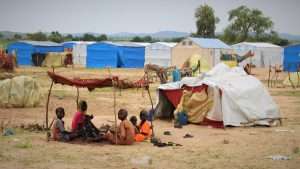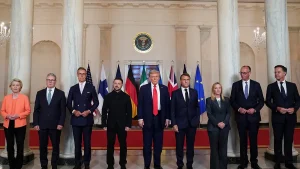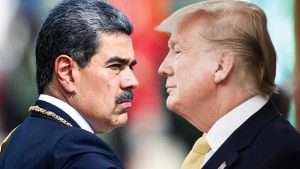Libya’s Parliament’s Plan: Ousting Dbeibah

In a twist of events in Libya, following a recent conference in Morocco which pushed for elections, it is now the Eastern power base which is taking a new initiative to usher in elections within a year.
Libya’s parliament, the House of Representatives (HoR) along with its consultative State Council (SC) intends to issue a new roadmap soon, aiming to hold parliamentary and presidential elections from which a new government will emerge, in a move that observers see as challenge to the outgoing head of the Government of National Unity, Abdulhamid Dbeibah, who is refusing to hand over power, according to AFP.
The State Council head Khalid al-Mishri said, “The House of Representatives and the State Council will next week issue a roadmap for holding elections,” noting that this roadmap “will allow for the formation of a new government and the drafting of electoral laws.”
Mishri added, in a televised statement, that “the deadline for holding elections is mid-March.”
He continued, “If Dbeibah refuses to hand over power to the new government, other measures will be taken,” noting that “a new head of the High National Election Commission (HNEC) must be named because the current head, Imed al-Sayeh, has been subjected to judicial rulings, and all sovereign positions will be discussed between the two councils.”
This comes after UN special envoy to Libya, Abdoulaye Bathily, said that the country had reached a decisive stage on the path towards elections, and that the completion of the 6+6 committee’s preparation of election draft laws is an opportunity that should not be missed.
He insisted that the current situation in Libya is no longer tolerable, stressing his commitment to exercising his role in enabling dialogue between all parties.
The UN envoy also urged the Libyan leaders to reach decisions on the electoral laws that are acceptable to everyone. He called on them to show wisdom, a spirit of compromise and political insight when dealing with the controversial aspects of those laws.
The conclusions of the Joint Committee for the Preparation of Electoral Laws formed by the House of Representatives and the 6+6 committee were met with local apathy and reservations, even by Mishri himself. Immediately after the committee announced the outcome of its meetings in Bouznika, Morocco on June 7, he had urged further discussion of the committee’s decisions while Bathily had already stated on the record that the Morocco deal would not bring about peaceful elections.
Libya is currently struggling with a political stalemate and the inability of the HoR and SC to agree on the constitutional basis and laws regulating the elections, which are expected to draw more than 2.8 million voters who, since 2021, have registered to participate in the election.
Earlier, the HoR had pressed the need to form a new unified government for the country, in a step to bridge differences between rival parties and overcome the existing stage of political division between the eastern and western governments.
HoR speaker Aguila Saleh, emphasised “the need for a unified government on the entire Libyan soil with specific tasks to organise the elections.” His statements came during a June meeting in the city of al-Qubba (east) with the United Kingdom’s ambassador to Libya, Caroline Hurndall, according to a statement published by the HoR spokesman Abdullah Belhaq.
Libya has been divided between two governments, one headed by Dbeibah in the capital, Tripoli and the second in the east. Together, they have failed to secure the elections that the international community and the United Nations had always relied on to move the country to democracy after nine years of war and chaos.
Several sites in the city of Zawiya, in the west of the country, have been hit by air strikes, following a military operation launched by Dbeibah’s Government of National Unity against smugglers and to combat drug trafficking. The attacks led to the death of civilians and heavy material losses.
READ: Hafed Al-Ghwell: Is Libya really ready for party politics?
Commenting on this, Mishri considered that “the bombing of the Maya area in the city of Zawiya with drones is a message from the head of the interim unity government to his opponents.”
Mishri said, “Dbeibah’s message to his opponents is that whoever thinks of a new government and ousting him will be targeted.”
A week ago, the SC media office said Mishri had submitted to the US envoy Richard Norland and the French envoy Paul Soler a proposal on a roadmap for holding elections, without revealing its details.
Last week, the Libyan parliament voted to choose the president and members of the Constitutional Court, despite the Supreme Court ruling that the vote was unconstitutional, in a move that has sparked new disputes with the State Council.
Due to disagreements between state institutions, especially over electoral laws, the elections were not held on December 24, 2021, as it was decided during the political dialogue forum between the parties to the conflict, held under UN auspices in Tunisia in November 2020.
AFP
Want to chase the pulse of North Africa?
Subscribe to receive our FREE weekly PDF magazine














